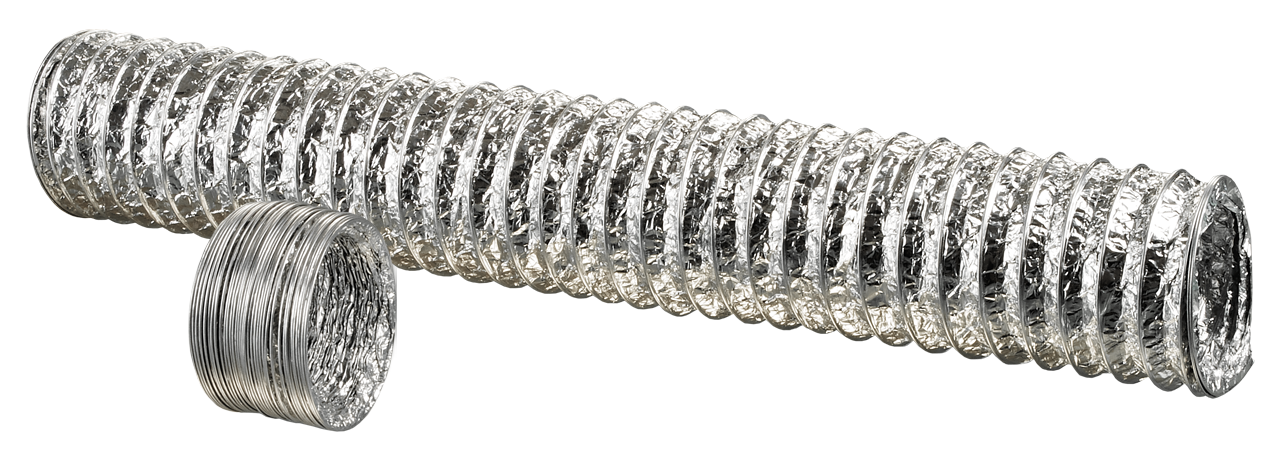
General information on air ducts
What is a flexible air duct?
Flexible air ducts, Polyvent and Isovent series are the air ducts with a frame made of spiral wire reinforcement with elastic covering. Semi-flexible air ducts Aluvent and Thermovent are the spirally wound air ducts made of durable and less elastic materials.
The flexible and semi-flexible air duct design allows easy transportation to the site in compressed condition whereas during mounting the air ducts is stretched up to required length.

Due to many advantages flexible and semi-flexible air ducts gain more and more popularity.
Basic advantages
- Compact transportation;
- Low cost and easy weight of the system;
- Less time for mounting of the system;
- Quick system geometry amendment whenever required;
- Easy to use for dismantling, service and repair works;
- Cost reduction for the project.
Air duct application
Flexible and semi-flexible air ducts are used for transportation of air masses in ventilation, air heating and conditioning systems and for the technological purposes as air supply to industrial units, technological waste aspiration and transportation of granular and granulated materials in pneumatic systems, etc.
The air ducts are installed in ventilation systems and vents of high-rise buildings, cottages and residential houses.
In commercial and industrial objects the air duct are used for air conditioning systems, air supply and exhaust systems, air heating systems.
A wide range of the VENTS air ducts offers the best suitable air duct type not only for ventilation, air conditioning and air heating systems but for specially designed industrial application:
- Chemistry: aggressive media transportation.
- Pharmaceutics: technological processes including pneumatic transportation.
- Food and beverage: transportation of food products and waste within permissible limits.
- Car service centres, filling stations, oil refineries: gas mixture exhaust.
- Woodwork: transportation of saw-dust and woodwork waste.
- Glass industry: aspiration of dust, glass and ceramic particles.
Use Tables 1, 2 and 3 to select air ducttype.
Thank your for your time and your wish to improve our site.
